 ,
,  ,
, 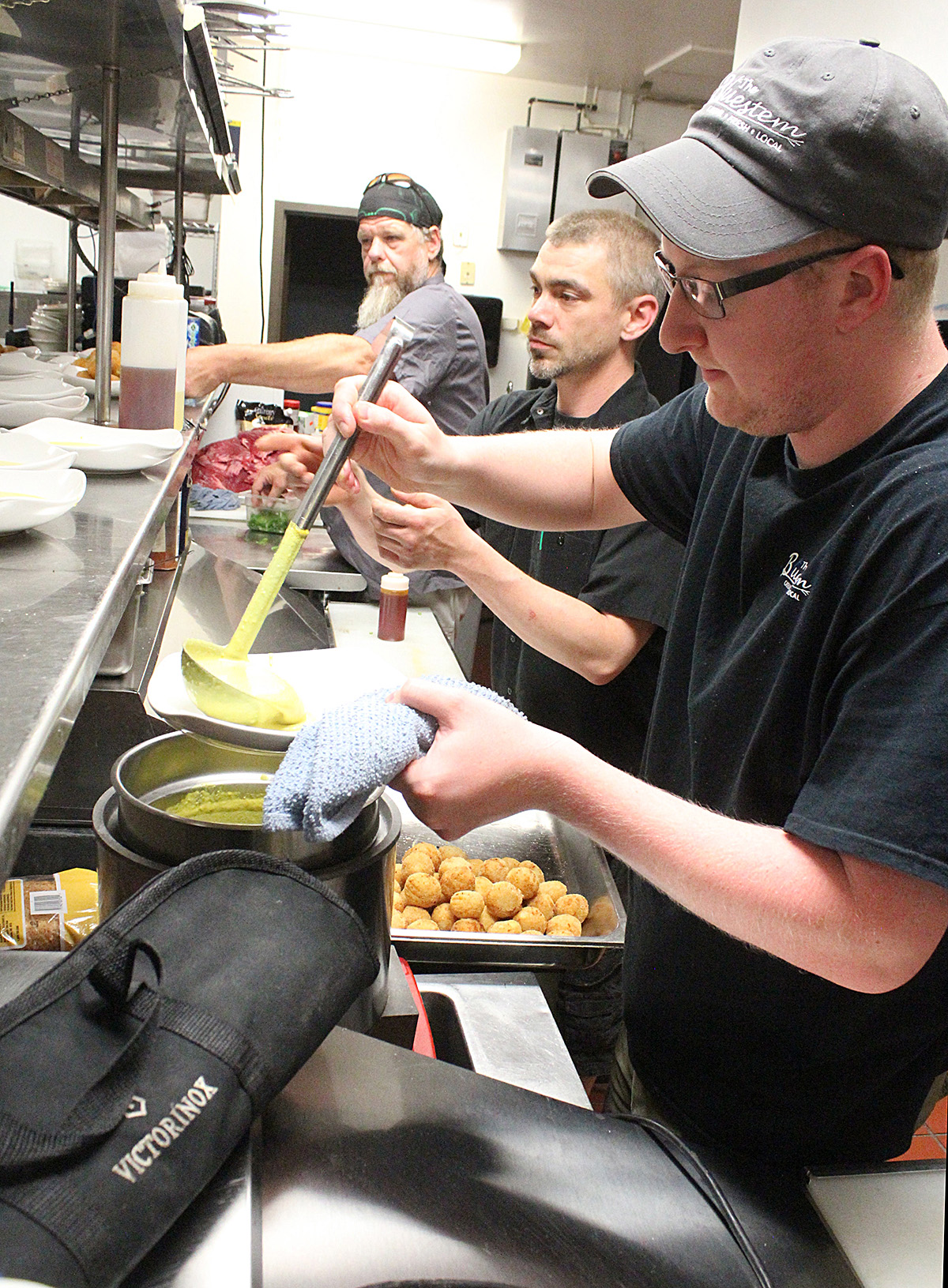 ,
, 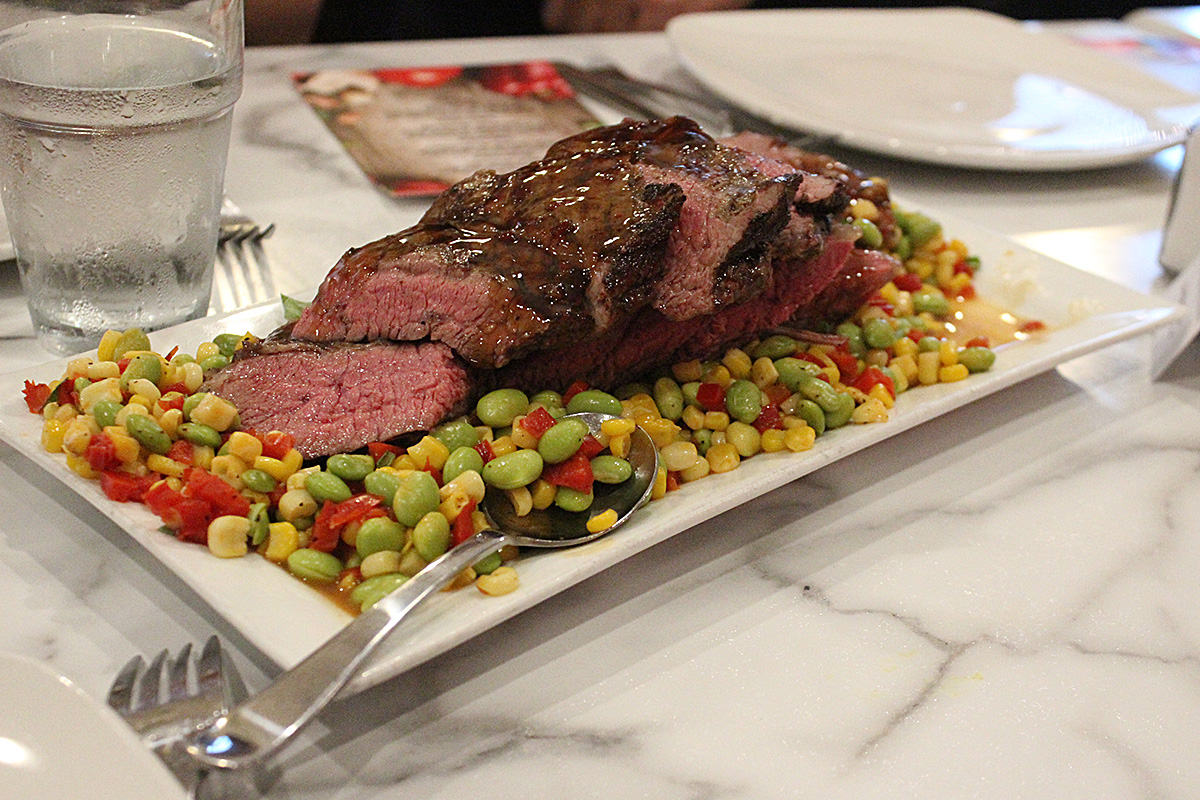 ,
, 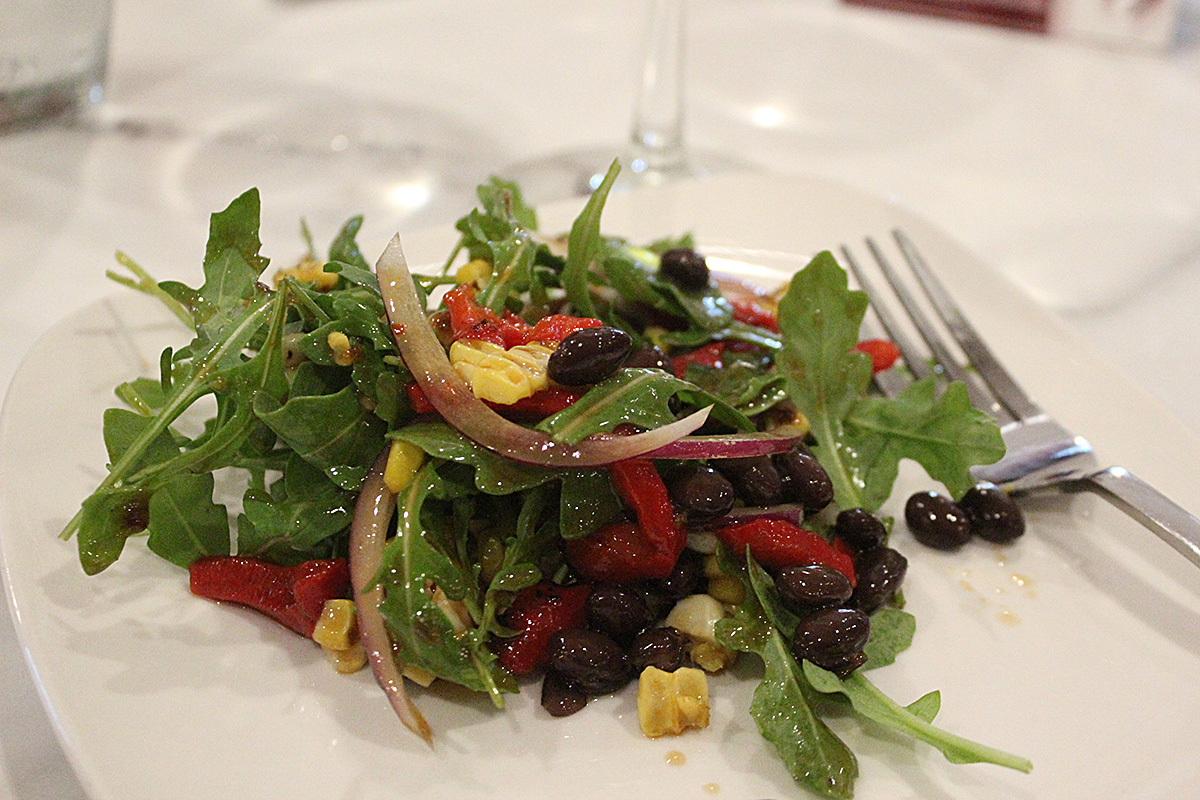 ,
, 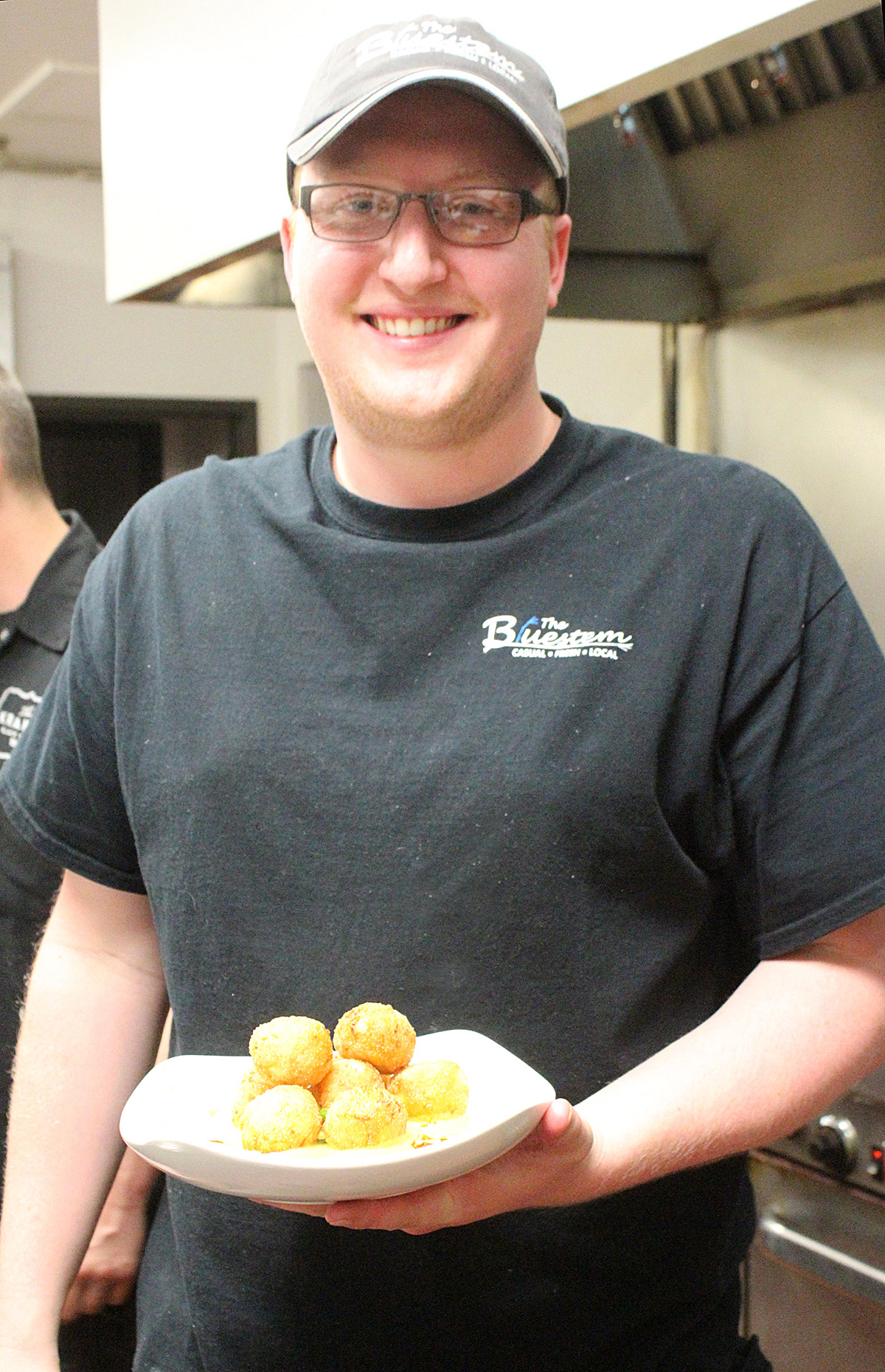 ,
, 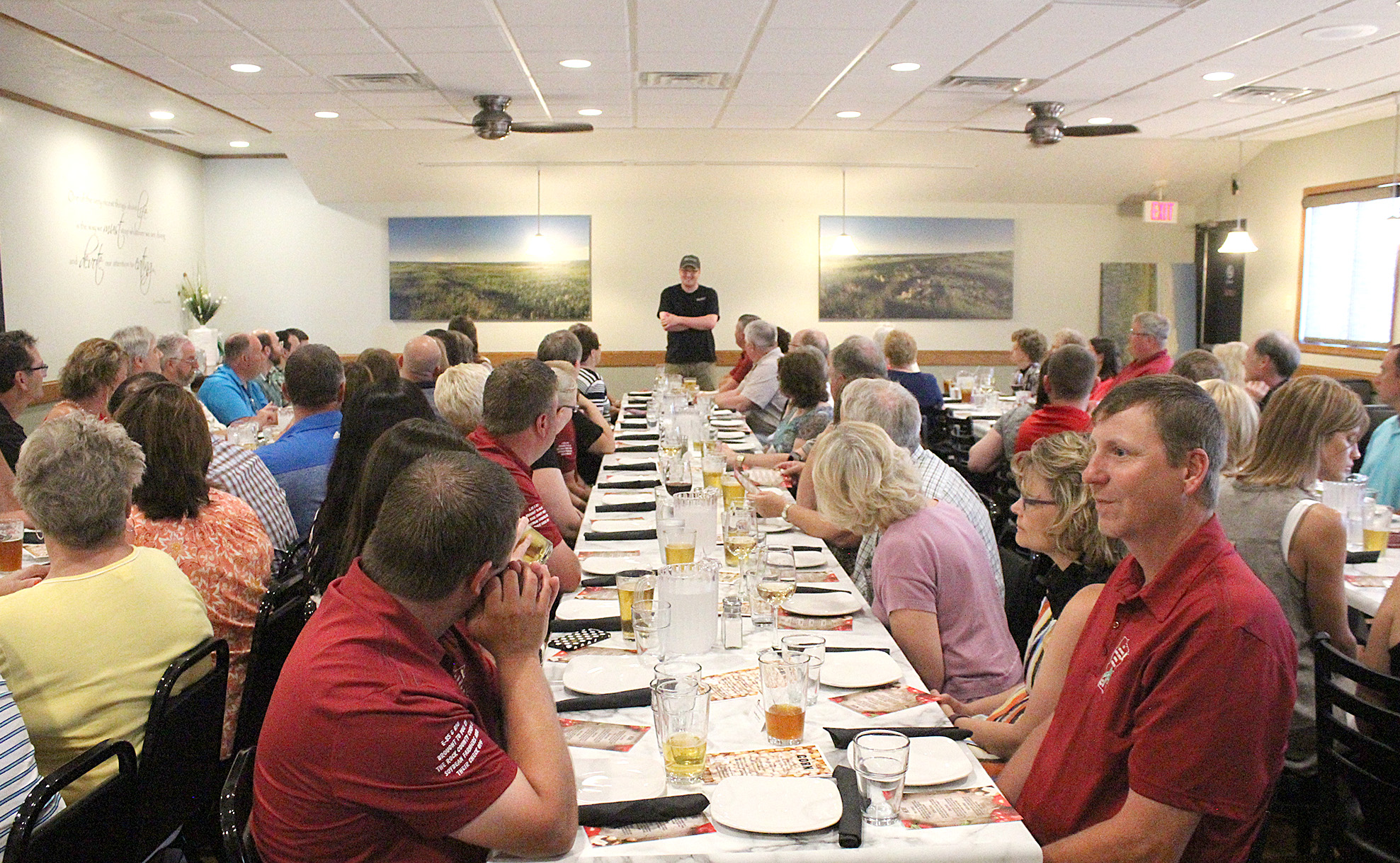
Ag education and philanthropic fundraising joined forces Sunday night for a “Farm to Table” event that met both education and fundraising goals.
The Luverne Area Community Foundation (LACF) and the Rock County Corn and Soybean Growers hosted a meal at The Bluestem for nearly 100 people.
Chef Skyler Hoiland created unique menu items using corn and soybeans.
Between courses and drinks (beer from Take 16 brewery in Luverne, and wine from local wineries) topics in agriculture and food supply were discussed.
Adam Birr, executive director of the Minnesota Corn Growers Association, said it’s not just city people who need education on ag practices.
Despite the fact that many rural residents have farming backgrounds, many are now at least a generation removed from daily farm work.
"We need more dialogue like this,” Birr said Sunday night. “I'm surprised by the number of people more than a generation removed from farming.”
He said he hoped Sunday night’s attendees listened attentively and critically.
“We don't expect you to come here tonight to be indoctrinated and just agree,” Birr said. “We hope to be credible.”
Among those credible sources is a recent report by the prestigious Academy of Natural Sciences that states there is no evidence to support that GMOs (genetically modified organisms) are harmful from a food safety standpoint.
GMOs have genomes that have been engineered to result in hardier varieties of crops and produce that are more resistant to climate, pests and disease. Farm organizations assert that it’s allowed them to grow more food with fewer chemicals.
Despite scientific evidence supporting GMO safety, many European countries require food labels to identify genetically modified ingredients.
U.S. ag lobbyists have fought mandatory labeling.
“We support voluntary labeling, but we’re against mandatory labels because of the impression that there's something wrong with it,” said Joe Smentek, director of environmental affairs for the Minnesota Soybean Growers.
He said there is an unfounded fear that humans might be somehow affected by genetically modified food sources. “"If you drink panther blood, you don't get panther powers,” Smentek said. “Your body doesn't process food that way."
He also touched on buffer strip legislation, emphasizing that clean water and air are everyone’s responsibility.
“I don't like the direction of more fighting. I'm a city kid pretty far removed from farming, but I know no farmer wants their nutrients washed down the river,” Smentek said.
"There's a big disconnect with the message … We hear people say things like ‘they oversaturate their soil with nitrogen.' There's no oversaturation of nitrogen. It's expensive."
He said the discussion has created animosity between farmers and city residents.
He gave the example of leaf pickup service in many cities where residents are encouraged to rake their leaves into the gutters for the city to come by and collect.
"So the leaves sit in the gutter and it rains … that's horrible for water quality,” Smentek said. "It's not that anyone wants to pollute the air or water, they just don't know better."
Beaver Creek farmer Lyle Rollag said discussion like Sunday night’s event is helpful for everyone, whether they’re farmers or not.
"We didn't feel Luverne was a hotbed of activism, but we may have equipped them with answers to questions posed by others,” he said after the dinner.
Foundation director Emily Crabtree said the event was a success for farmers and fundraisers.
“We’ve been working on how the foundation can reach the ag community, and the Corn and Soybean Growers came to me and said, ‘What if we did an educational event?’” Crabtree said.
The $40 ticket included the meal and locally featured beer or wine, and proceeds benefitted the foundation, which supports a number of local causes.
Lucas Peters of the Rock County Corn and Soybean Growers said the event was all about helping the foundation and reaching new community members.
“We saw this event as an opportunity to help the fundraising efforts of the LACF and have a conversation with people about what local farmers are doing to grow food safely for local residents and a growing population,” Peters said.


